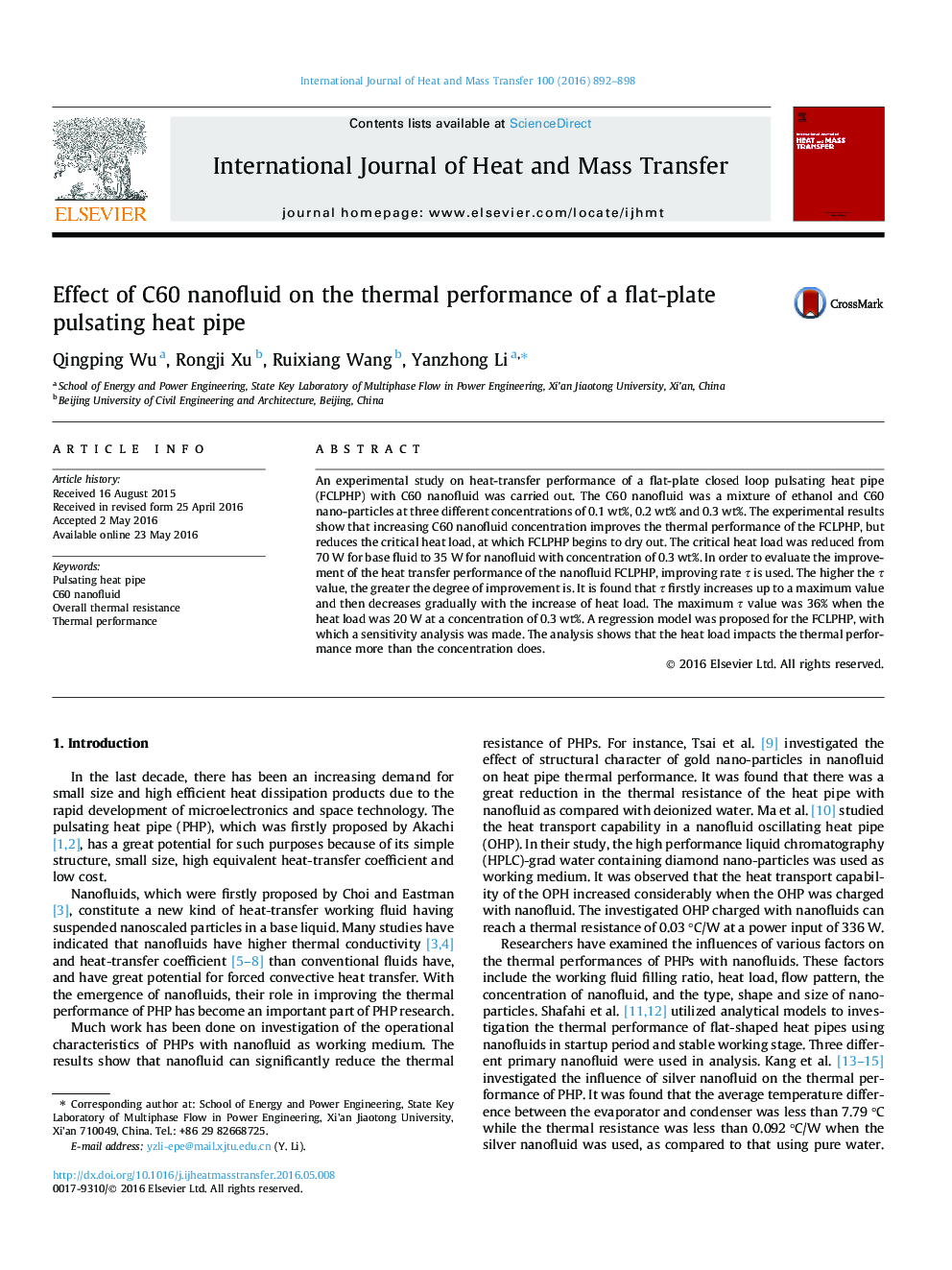| Article ID | Journal | Published Year | Pages | File Type |
|---|---|---|---|---|
| 656413 | International Journal of Heat and Mass Transfer | 2016 | 7 Pages |
Abstract
An experimental study on heat-transfer performance of a flat-plate closed loop pulsating heat pipe (FCLPHP) with C60 nanofluid was carried out. The C60 nanofluid was a mixture of ethanol and C60 nano-particles at three different concentrations of 0.1Â wt%, 0.2Â wt% and 0.3Â wt%. The experimental results show that increasing C60 nanofluid concentration improves the thermal performance of the FCLPHP, but reduces the critical heat load, at which FCLPHP begins to dry out. The critical heat load was reduced from 70Â W for base fluid to 35Â W for nanofluid with concentration of 0.3Â wt%. In order to evaluate the improvement of the heat transfer performance of the nanofluid FCLPHP, improving rate Ï is used. The higher the Ï value, the greater the degree of improvement is. It is found that Ï firstly increases up to a maximum value and then decreases gradually with the increase of heat load. The maximum Ï value was 36% when the heat load was 20Â W at a concentration of 0.3Â wt%. A regression model was proposed for the FCLPHP, with which a sensitivity analysis was made. The analysis shows that the heat load impacts the thermal performance more than the concentration does.
Related Topics
Physical Sciences and Engineering
Chemical Engineering
Fluid Flow and Transfer Processes
Authors
Qingping Wu, Rongji Xu, Ruixiang Wang, Yanzhong Li,
